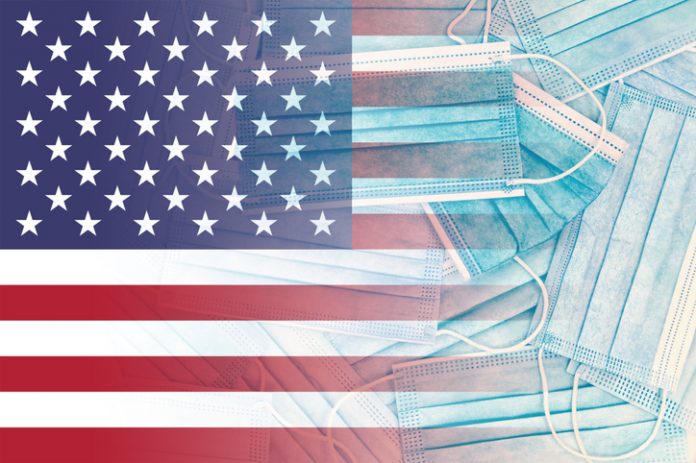Rep. Ronny Jackson (R-TX) has introduced a resolution to make the United States self-sufficient in medications to counter what he says is “China’s grip on America’s pharmaceutical supply chain.”
The move comes amid growing awareness of the vulnerability of the U.S. health care system to potentially hostile foreign forces, and it coincides with rising suspicions that COVID-19 may have escaped from a lab in Wuhan, China.
“I have long said that America needs to have a self-sufficient pharmaceutical supply chain to ensure that we have safe and accessible access to our medications,” Jackson said in a statement. “China’s military growth and predatory economic practices pose a grave threat to the United States, and, if left unchecked by the Biden administration, could have disastrous consequences.”
Jackson is a medical doctor and the former U.S. Navy and White House physician, who now serves on the House Armed Services and Foreign Affairs Committees.
Overcoming RX Regulatory Obstacles
Among other things, Jackson’s resolution calls for addressing “shortcomings in [Food and Drug Administration (FDA)] data collection to better understand the exact nature of United States reliance on foreign-sourced advanced pharmaceutical ingredients” and to “identify and streamline [FDA] regulatory hurdles that have stifled the United States pharmaceutical manufacturing base and have promoted foreign supply lines and offshoring United States industry.”
The resolution also calls for the removal of federal tax, regulatory, debt burdens, and other barriers that have weakened the U.S. pharmaceutical base and aims to have the U.S. Trade Representative work with the international community to free trade policies and “counter the harmful and unfair trade policies of the Communist Chinese regime.” Jackson’s non-binding resolution merely expresses a “sense of the Congress” that certain steps should be taken.
Its call for loosening regulations gives it little chance of being considered in Speaker Nancy Pelosi’s House. However, lawmakers are frustrated with China, and legislation to investigate the origins of the COVID-19 virus was reintroduced in late May with bipartisan support. Introduced by five Democrats and five Republicans in the House, the “Made in America Emergency Preparedness Act” (MAEPA) would establish a 9/11-style commission to investigate how the pandemic started and review the response by the U.S. government and the private sector and determine steps to be taken in confronting a future outbreak.
“In response to this current crisis, we must never again find ourselves caught off guard, unable to protect our communities,” states a press release issued by the bill’s sponsors. “We should never again see nearly 600,000 American lives lost at risk and day to day life turned upside down.”
In keeping with the thrust of Jackson’s resolution, the commission envisioned in the MAEPA would boost domestic manufacturing of pharmaceuticals and medical equipment.
“We simply cannot outsource our public safety and national security to foreign nations,” Rep. Brian Fitzpatrick (R-PA), a co-sponsor of the bill, said in a statement. “We must reconstitute our health care and public safety supply chain back to the United States. Medical products, protective equipment, pharmaceuticals, emergency response equipment, and all other critical items and materials needed to respond to a national emergency must be produced domestically for domestic consumption, especially during a critical, time-sensitive crisis.”
Allowing Lawsuits Against China
Another bill reintroduced recently, this one taking direct aim at China, is the “Never Again International Outbreak Prevention Act,” introduced by Reps. Fitzpatrick and Conor Lamb (D-PA). The bill would strip China of its sovereign immunity, allowing COVID-19 victims’ families to sue China, as well as other countries that have intentionally misled the international community on the outbreak.
“As we have seen from COVID-19, the Chinese Communist Party has been intentionally and maliciously misleading the rest of the world about the scope and spread of the novel coronavirus,” Fitzpatrick said in a statement.
Earlier versions of both bills were introduced last year but stalled. However, in the face of growing suspicions over Beijing’s handling of the virus, they may enjoy a second life.
Both bills can be seen as a vote of no confidence in the recently concluded World Health Organization (WHO) investigation into the origin of the pandemic. That investigation resulted in a report released in March that largely dismissed the theory that the virus escaped from the Wuhan Institute of Virology. However, recent evidence has strengthened the lab hypothesis, prompting the Biden White House to order U.S. intelligence agencies to “redouble their efforts to collect and analyze information that could bring us closer to a definitive conclusion” on the origin of the pandemic.
A report is due by late August. The move marks a significant reversal for the Biden White House, which had terminated a Trump-era investigation into the origin of the virus shortly after taking office in January.
Bonner R. Cohen, Ph.D., (bcohen@nationalcenter.org) is a senior fellow at the National Center for Public Policy Research.





















[…] (READ MORE) […]